Introduction
Greek philosophers form the core of all modern philosophy, religion and sometimes even science. There is no getting away from the impact that those thinking born on the Greek mainland and the several millennia ago have on all of us today. Some are household names, some not so well known but have made important contributions to the understanding of what it means to be human
1. Plato
Plato was an early polymath, interested in many of the thinking subjects such as mathematics and philosophy and subjects we would now consider part of modern science. He founded his Academy in Athens around 428BC ‘ considered the first institute of higher learning anywhere in Europe’¦ arguably the first university. No single individual has contributed so much to western thinking as Plato and his dialogues and other works are considered a vital part of philosophy classes all over the world today
2. Aristotle
Born in 384BC, he joined Plato’s academy as a teenager and stayed until he was 37. As well as philosophy, he wrote about biology, physics, logic, zoology, and created poetry and plays. He was so highly thought of that he was requested by Philip of Macedon to tutor his son Alexander (The Great). His writing was so prolific and ahead of his time that he is considered to be the world’s first scientist. He is revered today by Muslims and Christians alike due to his thoughts on theology
3. Thales
One of the earliest Greek philosophers, he is considered one of the most important pre-Socratic philosophers of ancient Greece and Bertrand Russell states that he was the first philosopher. He came from Miletus, a Greek colony now in Turkey. He was also possibly a politician, businessman and sage and may be considered by some to have introduced some degree of rational thinking leading to modern science. Where most ascribed natural disasters to the whim of the gods, he hypothesised potential naturalistic explanations
4. Heraclites
Born around 535BC, he was one of the most important pre-Socratic philosophers and a native of Ephesus ‘ now in modern Turkey. One of his most important contributions to philosophy is his idea of the ever-changing nature of the universe ‘ something that no scientists would ever disagree with today. His most famous quote is ‘No man ever steps in the same river twice’. Early Christians sought to emulate some of his thoughts but he also had his detractors too ‘ debate was furious but Justin Martyr declared him along with Socrates ‘Christians before Christ’
5. Socrates
Socrates is most famous for his thoughts on ethics and another considered a founder of western philosophy. His ‘Socratic Method’ concerns itself with asking questions, not just to gain answers to the questions, but also to encourage the full spectrum of insights into the questions. He wrote nothing down so what we know of him comes purely from his students and what others have said about him ‘ referred to as The Socratic Problem. He was put to death by his Athenian peers in 399BC
6. Pyrrho
Credited with inventing scepticism and therefore also credited as making a major contribution to later scientific thinking, Pyrrho came up with the concept of acatalepsia which describes that for every assertion there is an equally valid contradiction. A couple of centuries after his death, Aenesidemus established Pyrrhonism in his honour ‘ an idea that practitioners withhold consent from any proposition that cannot be proven. Though this is partly an idea of modern science, pyrrhonism took it one step further and ascertained than nothing could ever be known
7. Hypatia
Considered by many to be the first scientific ‘martyr’, Hypatia lived in Egypt during the 3rd century when the Byzantine Empire still ruled most of North Africa. Of Greek birth, she was a teacher, astronomer and philosopher and well-known mathematician of the Academy of Athens. A mob of Christians, blaming her for a political feud, took her to a church known as the Caesareum, stripped her bare and killed her with tiles. The exact text doesn’t make it clear how this came about and reports are conflicting. However, all sources agree that she was mutilated after death
8. Metrocles
Most Greek philosophers led an interesting life but none of them have quite the story to tell that Metrocles had. It is said that he became a scholar of cynicism after farting during recital of a speech. He shut himself away and attempted to starve himself to death. When Crates explained that it was perfectly natural and did it himself, Metrocles let go of his social anxieties and found happiness through education in cynicism. He wrote extensively though sadly much of his work does not survive today, and he was deeply critical of avarice
9. Secundus the Silent
Another cynic, Secundus took a vow of silence most of his life. It is said in surviving texts that the Emperor Hadrian posed many questions for him to answer. His vow of silence apparently came about when he philosophised that ‘all women were whores’. Dressing up so people would not recognise him, he talked his own mother into sleeping with him for money. Though no intimacy took place, he confessed his real identity and ‘ shamed ‘ his mother took her own life. Believing his tongue responsible for the tragedy, he vowed never to utter another word
10. Xenophanes
Religious criticism has always been a controversial subject. Modern atheists would say that ‘man made God in his own image’ or something like it. Xenophanes introduced that sentiment in stating that of oxen had gods, then the god or gods would look like oxen and that had a variety of other animals had hands and the ability to portray their gods, then those gods too would look like those animals. He is widely credited as emphasising the difference between knowledge and belief
Conclusion
The list above represents a very small sample of the most important thinkers of ancient Greece ‘ some are well-known, some not so much. In each case, they have contributed something to over 2000 years of western philosophy ‘ and in some cases eastern philosophy and the later Arab thinkers when the religions and societies of Greece declined
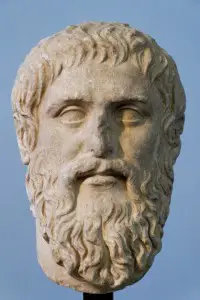
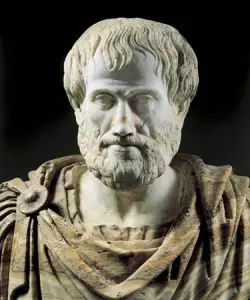
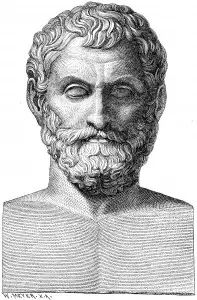

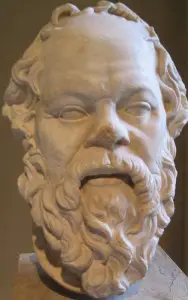


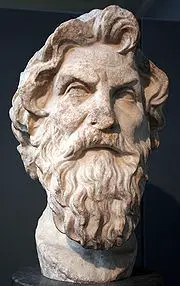

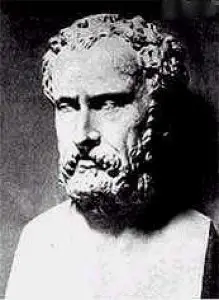








Leave a Reply